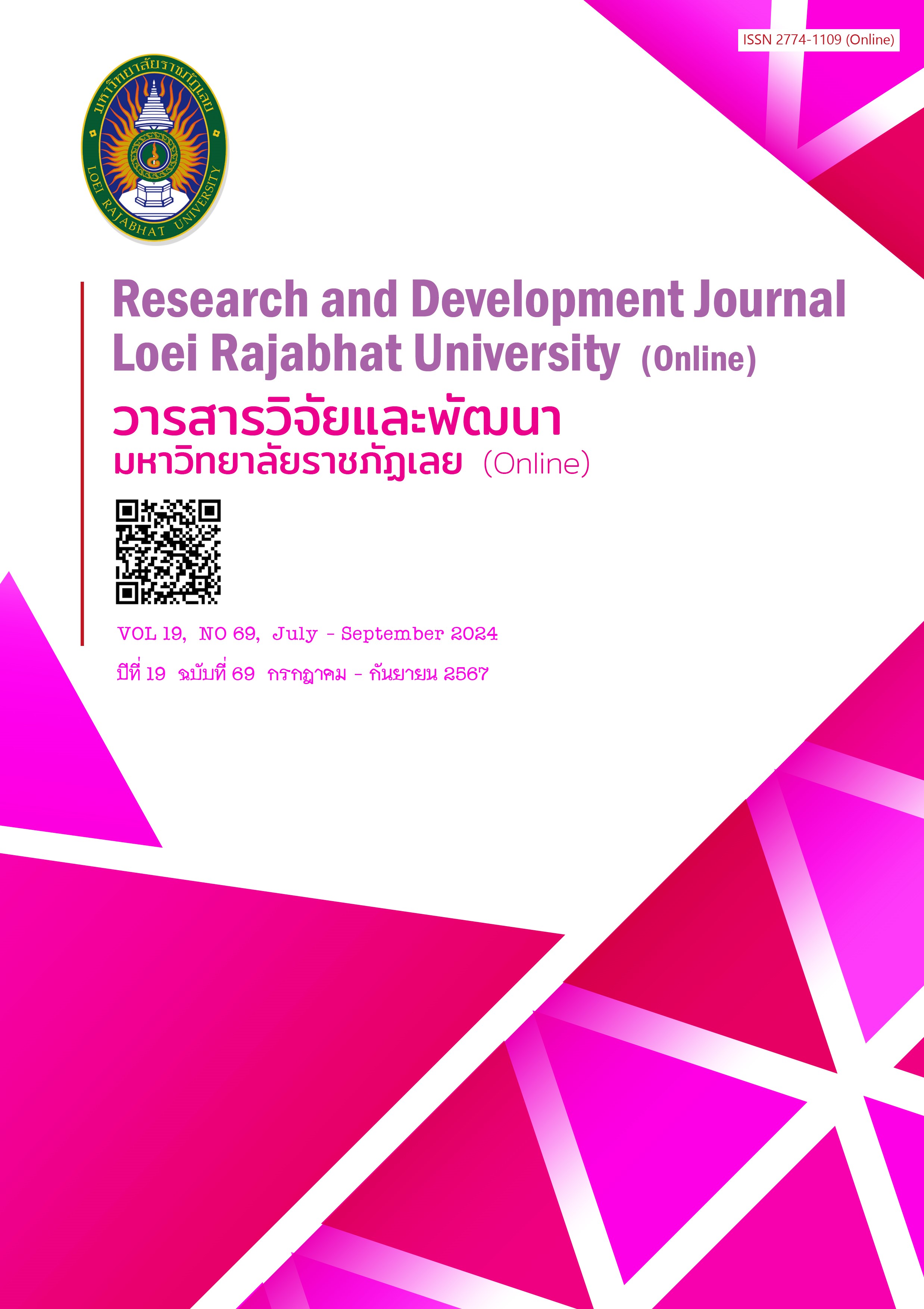The Handle with Aging Society in Thailand Looking Back Through Elderly Care Policy in Japan
Keywords:
the handle with aging society, elderly care policy, Thailand, JapanAbstract
Japan is a country that has dealt with the transition to an aging society effectively, with policies that have been adjusted according to the era of each government. But even so, it still cannot control the impact that may occur in the future. In particular, the increasing number of elderly people in the country will affect the workforce who takes care of nursing home care for the elderly as well. That is the shortage of nursing workers. Although Japan is known for its extensive welfare programs and its world-leading innovative technology bringing technology into use in this section. It's still not enough to serve the elderly who are becoming more and more advanced day by day. Thailand itself has also entered an aging society. This article therefore has the purpose of presenting information to study and learn for Thai society to deal with such problems soon. Currently, the government as well as the private sector have different policies or more services for the elderly. But this problem still needs to be pushed to the people to help manage and care for the elderly society together between the public sector, the private sector, and the public sector in the future.
References
กระทรวงการพัฒนาสังคมและความมั่นคงของมนุษย์. (2546). พระราชบัญญัติผู้สูงอายุ พ.ศ.2564. สืบค้นจาก https://www.dop.go.th/download/laws/regulation_th_20152509163042_1.pdf.
กรมกิจการผู้สูงอายุ. (2566). กฏหมายและระเบียบ. สืบค้นจาก https://www.dop.go.th/th/laws/2/11.
ชัยรัตน์ นทีประสิทธิพร และ มุจลินท์ ชัยชมภู. (2562). การเตรียมพร้อมตลาดแรงงานในสังคมสูงอายุ: บทเรียนจากประเทศญี่ปุ่น สู่ประเทศไทย. วารสารเครือข่ายญี่ปุ่นศึกษา, 9(2), 98-112.
ไทยรัฐ. (2566). อัปเดตรายละเอียด นโยบายพรรคเพื่อไทย สำหรับผู้สูงอายุหลัง เศรษฐา ทวีสิน ได้รับโหวตเป็นนายกฯ. ไทยรัฐออนไลน์. สืบค้นจาก https://www.thairath.co.th/lifestyle/lifestyle45plus/2694354.
วนัทยา มงคล. (2564). สังคมสูงวัยในญี่ปุ่นเรียนรู้เขาเพื่อย้อนดูเรา. สืบค้นจาก https://hhcthailand.com/japanese-aging-society/.
วิทยาลัยประชากรศาสตร์. (2564). โครงการการส่งเสริมการมีงานทำที่มีคุณค่าสำหรับผู้สูงอายุเพื่อสังคม สำหรับคนทุกวัยในประเทศอาเซียนบวกสาม ระหว่างและภายหลังสถานการณ์แพร่ระบาดของโรคติดเชื้อไวรัสโคโรนา 2019 (COVID-19). กรุงเทพฯ: จุฬาลงกรณ์มหาวิทยาลัย.
ศิริลักษณ์ มีมาก. (2561). การดำเนินงานด้านผู้สูงอายุของประเทศไทยตามกรอบปฏิญญาอาเซียนเรื่องผู้สูงอายุ. สืบค้นจาก http://www.dop.go.th/download/knowledge/th1541673448-145_0.pdf.
สราวุธ ไพฑูรย์พงษ์. (2558). การปฏิรูปการดูแลผู้สูงอายุระยะยาวในประเทศญี่ปุ่น. สืบค้นจาก https://tdri.or.th/2015/07/aging-society-in-japan/.
สราวุธ ไพฑูรย์พงษ์. (2560). ผู้สูงอายุมึนกับมาตรการการช่วยเหลือของรัฐ. สืบค้นจาก https://thecitizen.plus/node/19266.
สำนักงานหลักประกันสุขภาพแห่งชาติ. (2559) คู่มือระบบการดูแลระยะยาวด้านสาธารณสุขสำหรับผู้สูงอายุที่มีภาระพึ่งพิงในพื้นที่ (Long Term care) ในระบบหลักประกันสุขภาพแห่งชาติ ปีงบประมาณ 2559. สืบค้นจาก https://www.nhso.go.th/storage/downloads/main/37/%E0%B8%84%E0%B8%B9%E0%B9%88%E0%B8%A1%E0%B8%B7%E0%B8%AD_LTC_.pdf.
สำนักองค์การรัฐสภาระหว่างประเทศ. (2565). สังคมผู้สูงอายุในประเทศไทยและการรับมือกับปัญหา. สืบค้นจาก https://www.parliament.go.th/ewtadmin/ewt/parliament_parcy/ewt_dl_link.php?nid=93879&filename=index.
สำนักงานกองทุนสนับสนุนการสร้างเสริมสุขภาพ. (2564). การเผชิญหน้า ‘สังคมผู้สูงอายุ’ โจทย์ท้าทายภาระค่าใช้จ่ายที่เพิ่มขึ้น. สืบค้นจาก https://shorturl.asia/XNktS.
Cabinet office. (2022). 高齢化の状況. Retrieved from https://www8.cao.go.jp/kourei/whitepaper/w-2022/html/zenbun/index.html.
Ministry of Health, Labour and Welfare. (2021). 第8期介護保険事業計画に基づく介護職員の必要数について. Retrieved from https://www.mhlw.go.jp/stf/houdou/0000207323_00005.html.
Statistics Bureau pf Japan. (2020). 高齢者の人口. Retrieved from https://www.stat.go.jp/data/topics/topi1261.html.
Statistics Bureau pf Japan. (2021). 人口推計. Retrieved from https://www.stat.go.jp/data/jinsui/pdf/202112.pdf.
Downloads
Published
How to Cite
Issue
Section
License
Copyright (c) 2024 Research and Development Journal, Loei Rajabhat University

This work is licensed under a Creative Commons Attribution-NonCommercial-NoDerivatives 4.0 International License.
ข้อความที่ปรากฎในวารสารฉบับนี้เป็นความคิดเห็นของผู้เขียนแต่ละท่าน สถาบันวิจัยและพัฒนา มหาวิทยาลัยราชภัฏเลย และกองบรรณาธิการ ไม่จำเป็นต้องเห็นด้วยและไม่มีส่วนรับผิดชอบใดๆ
สถาบันวิจัยและพัฒนา มหาวิทยาลัยราชภัฏเลย ขอให้ผู้อ่านอ้างอิงในกรณีที่ท่านคัดลอกเนื้อหาบทความในวารสารฉบับนี้






